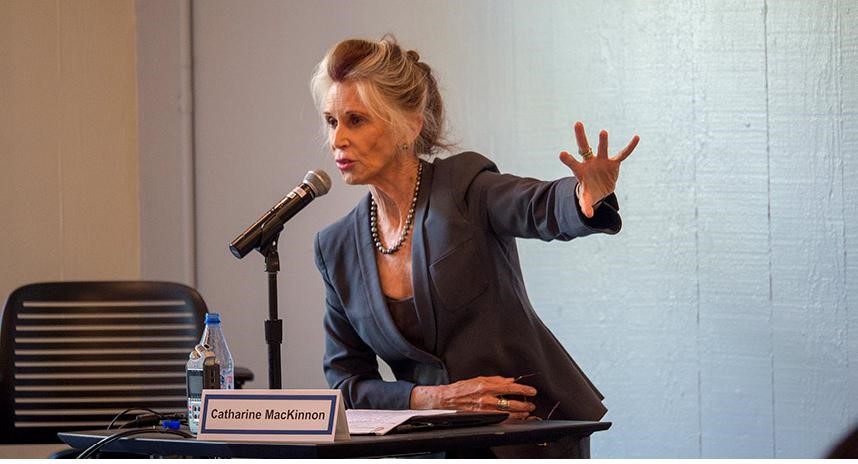|
Some Guy TT posted:Men as a group might be lost, but Post readers have a lot of ideas for directions. didnt read
|
|
|
|

|
| # ¿ May 21, 2024 05:01 |
|
didn't read that
|
|
|
|
Some Guy TT posted:so ive been reading this book the farm for a feminist book club the premise is that theres this high end surrogacy farm theres four perspective characters two surrogates at the farm one from a genteel new york background the other a poor filipina mother both young then theres the manager of the farm and then theres the significantly older cousin of the poor filipina mother whos taking care of her baby Some Guy TT posted:i dont think that is what the book is about which is why im really confused that the book club seems to be presenting the book as if it were while also defining this as the feminist interpretation as far as i can tell because theyre using the word patriarchy a lot to describe it did not read
|
|
|
|
real feminism is telling men you did not read their long rear end post
|
|
|
|
Gravid Topiary posted:and yet you're part of poppers porno reading club smdhh a critical issue with books by men is i cannot quote them at the author and say "did not read"
|
|
|
|
tristeham posted:skill issue i guess i could hit the amazon reviews
|
|
|
|
puncturewound78 posted:confused. That post implied Some Guy is a woman? So maybe you should have read it... always check the profile
|
|
|
|
Some Guy TT posted:was watching a show the other day and was kind of unnerved when one character described volunteer work as being about telling kids to take what they want and not to let anyone get in their way almost a length im willing to read but not quite. good hustle
|
|
|
|
Some Guy TT posted:this is how we know putin runs the forums because most of us are porpoises i read this whole post congratulations
|
|
|
|
loquacius posted:Laughed at this tweet so hard I had to resurrect the thread lol
|
|
|
|
Some Guy TT posted:On October 3, the New York Times published a recipe for “Marry Me Chicken” — a buttery and creamy recipe that is so good, the recipe's author claims that men have said that they’d marry her for that chicken. not even a chance
|
|
|
|
War and Pieces posted:the secret ingredient is menstrual blood shut the gently caress up
|
|
|
|
Some Guy TT posted:i think it depends on whether they have kids i suspect a lot of divorced person energy is because theyre unwilling to acknowledge that the real reason their marriage collapsed was because kids and everything that goes along with them were completely incompatible with their previous lifestyle divorced guy energy is fundamentally resentment yeah. it manifests as doing a bunch of independent expensive poo poo as a reaction against the resentment
|
|
|
|
Some Guy TT posted:I am the creator of a girl empowerment business. We created curriculum kits that use the stories of notable women in history to teach girls about their worth and potential. I am the writer and researcher, and B, my business partner (and one of my favorite guy feminists), is the creative and marketing guru. didnt read this but the generous line breaks are a good start
|
|
|
|
57001 posted:Tried to search the thread but I don't have platinum or whatever but Catharine MacKinnon recently published a (imho) great article in the Yale Journal of Law and Feminism entitled "A Feminist Defense of Transgender Sex Equality Rights" further proving that TERF-ism is fringe and trans women rock. i read this first one and its good. gonna work on the second later. the point she drives to at the end is interesting and i'm going to need time to fully digest it, but it tends to agree with my own priors: a rights-based feminist assessment of sex work/prostitution is subject to the same issues as any rights-based feminist framework, in that it neglects the social content and coerced nature those rights are exercised under. i do think she is collapsing the broader sense "sex work" is used in to a more specific word with a negative and extreme sense, "prostitution", along with missing the importance of the word "work" - a labor relationship rather than assessment of dignity and value.
|
|
|
|
Some Guy TT posted:a real intriguing point is made early on in this about how the act of physical transitioning isnt really particularly helpful or useful its just technically easier to accomplish than the complete reordering of society is why transpeople do it and not even as many transpeople do it as everyone tends to assume the act only really exists at all as a concession to the biological determinist argument to prove dedication to the concept of gender but as we can see terfs arent even slightly persuaded by this if anything the focus on biology has just given them an extra weapon in that they can argue that transpeople are engaging in self mutilation youve unlocked the secret to getting me to read these long rear end posts with no line breaks: quote me and respond to my point
|
|
|
|
Some Guy TT posted:the presumption of the importance of becoming a mother is something thats always bugged me in more popular feminist rhetoric you can hate marriage you can hate men but you should still want to be a mother even if youre using a surrogate and also a nanny and basically outsourcing pretty much anything you could describe as being a motherly or even parental task to some other person with the most absurd part being that these same people are perplexed when their kids grow up and basically want nothing to do with them as theyve never made any real emotional connection i read this one but id have been a lot happier about it if you included literally any punctuation or linebreaks
|
|
|
|
i won't be watching lain
|
|
|
|
kids are basically subject to the same progressive creep of isolation and ownership as every other aspect of society. if a kid is exposed to something which isnt part of the Plan, thats a problem, because the kid is Mine. so childhood is now reduced to the experience of an indoor cat or garaged car: often comfortable but not independent or growth-oriented
|
|
|
|
if not for that, how would we be posting on the something awful forums
|
|
|
|
Some Guy TT posted:we make this joke all the time but i think theres a distinction to be made between actually having conversations with people on a bbs message board and just communicating via roblox comments or parasocial youtube obsessions or maybe having "friends" in the sense that you might recognize certain user names that show up in splatoon lobbies even if you know basically nothing about who they even are yeah definitely and i think people whod still post on the something awful forums long for that slower more personal internet. but societally speaking, its not coming back any time soon
|
|
|
|
jacking off is on the bds list
|
|
|
|
that one could have been one paragraph dude
|
|
|
|
one short paragraph to be clear
|
|
|
|
i read long retarded essays if a woman wrote them (chatgpt does not count)
|
|
|
|
Some Guy TT posted:You would think a Bollywood actress who has faced the trials and tribulations of Bollywood's sexism, ageism and general discrimination against women would understand the true meaning of feminism and stand by it. But welcome to 2023 where everything and anything is possible in the world divided by 'traditional vs liberal'. not even a chance
|
|
|
|
now thats a post. keep it coming
|
|
|
|
Some Guy TT posted:watching an old episode of law and order svu (s10 e10) about a serial rapist with some kind of magical mind blanking roofie that doesnt show up on a toxscreen his one weird trick to beating rape charges is to film them and claim hes acting out mutually agreed upon rape fantasies and the final act is him blaming porn as his defense didnt reas
|
|
|
|
Whirling posted:I learned something really funny in another thread which is that gacha games have to make absolutely sure nothing resembles the "🤏" emoji in South Korea because some Korean radfem site used it to make fun of right-wing dudes online and it collectively traumatized them so badly that they will have a meltdown if they see it again. lol
|
|
|
|
Some Guy TT posted:Twenty eight years ago, I was sitting on the dusty rose carpeting of my childhood bedroom, staring at the cover of the latest issue Seventeen. This particular issue isn’t available on eBay, and only certain articles from inside have been digitized, so I can’t tell you the exact wording of the Editor’s Note, but others have a similar memory of its contents: look at this non-model on the cover, which I interpreted as look at this non-ideal body on the cover. didn't read this.
|
|
|
|
Some Guy TT posted:In Ovid’s Metamorphoses, Pygmalion is a sculptor who is so horrified by the existence of prostitutes that he begins to hate and revile women. He then sculpts himself a marble woman, later dubbed Galatea, who is so beautiful he falls in love with her, fondling her cold stone parts and kissing her. He begs Aphrodite to bring her to life, and she does. Galatea and Pygmalion get married and have a child. my fair lady is pretty good. i didnt read this though
|
|
|
|
Some Guy TT posted:i wonder sometimes if these kinds of feminists have ever spoken to literally any man in their lives if they genuinely believe we all fantasize about loving sticks with cantaloupes you do
|
|
|
|
Toph Bei Fong posted:Gains in women’s rights haven't made women happier. Why is that? not a chance
|
|
|
|
Some Guy TT posted:JK Rowling has donated £70,000 to a feminist group to help its bid to obtain a “historic” Supreme Court ruling stating that men cannot become women. not reading this
|
|
|
|
not gonna click that
|
|
|
|
tokin opposition posted:Good call it's just "why aren't people having kids???????????" with a fresh spin of blaming it on the author's imaginary understanding of men. Skip it lol you read it
|
|
|
|
tokin opposition posted:I skimmed it in case it went terf. you nodded along to every word
|
|
|
|
meeting people irl is way less retarded in that way
|
|
|
|
Pentecoastal Elites posted:Would you rather come across a bear or a twink in the woods? twinks are closely followed by forums moderators...the bear for sure
|
|
|
|

|
| # ¿ May 21, 2024 05:01 |
|
take it to the transphobia thread
|
|
|






